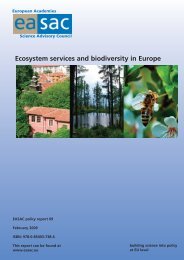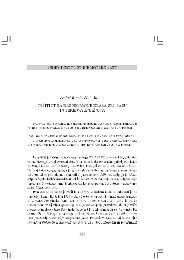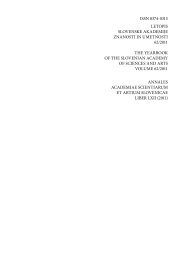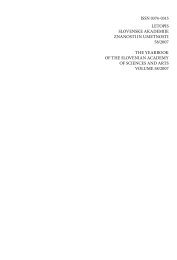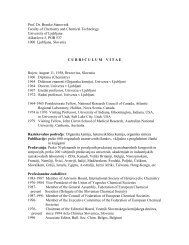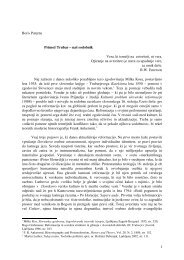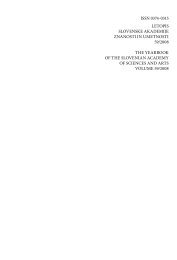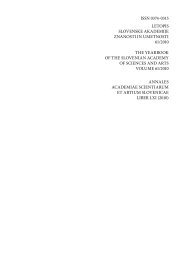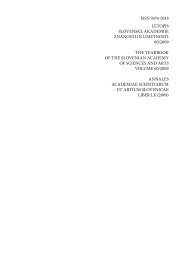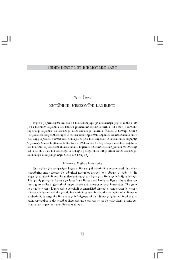Taking Inquiry-Based Science Education into Secondary ... - SAZU
Taking Inquiry-Based Science Education into Secondary ... - SAZU
Taking Inquiry-Based Science Education into Secondary ... - SAZU
Create successful ePaper yourself
Turn your PDF publications into a flip-book with our unique Google optimized e-Paper software.
6<br />
<strong>Taking</strong> IBSE <strong>into</strong> <strong>Secondary</strong> <strong>Education</strong><br />
<strong>Inquiry</strong> is not limited to the understanding of objects and phenomena that can be directly manipulated. If<br />
this were the case it would exclude using inquiry to learn about a number of phenomena which are part<br />
of students’ everyday experiences and the subject of their curiosity and questions – such as the apparent<br />
changing shape of the Moon and movement of the Sun. An essential feature of inquiry is the use of<br />
evidence from observations of such phenomena in deciding the best explanation, that is, the one that best<br />
fits the data available. The explanation may be in terms of a physical or theoretical model of which the parts<br />
can be manipulated to make predictions which are then compared with observations of the phenomena.<br />
In using models it is important to preserve the connection between observations and parts of the model,<br />
recognising that students often interpret models to fit their own ideas.<br />
Having made the point that the subject matter does not limit the use of inquiry, it is also important to<br />
recognise that school science does involve learning things which have to be known about rather than<br />
understood. Manipulative skills of using equipment and measuring instruments, conventions, symbols and<br />
names, require direct instruction. The important point is to ensure that this knowledge facilitates inquiry and<br />
does not replace it. It is essential to use inquiry where the aim is to develop understanding.<br />
3. Why IBSE?<br />
The case in favour of IBSE becomes clear from considering what we want to achieve through science<br />
education. In order to prepare students for the demands of twenty-first century life it is widely accepted 2<br />
that science education should enable students to develop key science concepts (big ideas) which enable<br />
them to understand the events and phenomena of relevance in their current and future lives. Students<br />
should also develop understanding of how science ideas and knowledge are obtained and the skills and<br />
attitudes involved in seeking and using evidence. <strong>Science</strong> education, together with students’ education in<br />
other disciplines, should develop awareness of what it means to learn and the desire to continue learning,<br />
as is essential in our rapidly changing world.<br />
In summary, through their science education students should develop:<br />
• understanding of fundamental scientific ideas<br />
• understanding of the nature of science, scientific inquiry, reasoning<br />
• scientific capabilities of gathering and using evidence<br />
• scientific attitudes, both attitudes within science and towards science<br />
• skills that support learning throughout life<br />
• ability to communicate using appropriate language and representations, including written, oral and<br />
mathematical language.<br />
An inquiry approach to science education is widely advocated as being capable, if well implemented, of<br />
achieving these aims to a far greater degree than traditional approaches. The position is summed up by<br />
Alberts (2009):<br />
We believe passionately in the power of science to create a better world, as well as in the critical<br />
importance for everyone in society of the values and attitudes that science demands of scientists:<br />
honesty, a reliance on evidence and logic to make judgments, a willingness to explore new ideas, and<br />
a skeptical attitude toward simple answers to complex problems. But very little of this is conveyed to<br />
students in our teaching (Alberts 2009).<br />
2 OECD 2003, p132; Harlen (Ed) 2010<br />
Report on the conference, York, UK, October 27-29 2010



